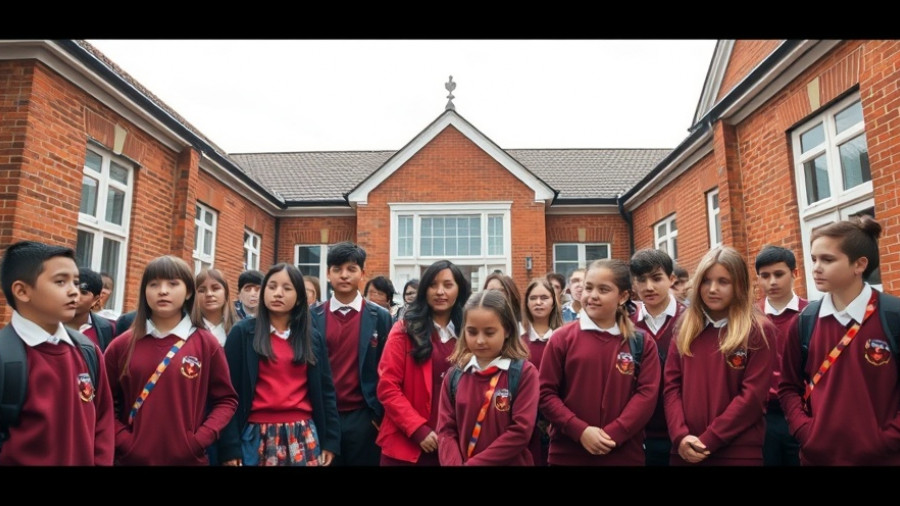
The Silent Crisis of Inclusive Education in South Africa
In a shocking turn of events, 38 special schools in KwaZulu-Natal have recently closed their doors, leaving empty classrooms and locked gates. This alarming situation results from prolonged neglect by the provincial Department of Education, which has failed to provide the necessary financial support for these institutions. Dr. Khetha Khumalo of the South African National Association for Special School Education has highlighted that the lack of funding has left parents and educators helpless, further exacerbating the plight of children with disabilities across the nation.
A Systematic Failure Affecting Vulnerable Learners
Research indicates that between 500,000 and 600,000 children with disabilities are excluded from South Africa's education system entirely, and many of these children are left without any formal education. This statistic represents real lives, like that of an eight-year-old boy with Down's syndrome whose mother has desperately sought a suitable school for her child but continues to face rejection and delays. Sadly, many schools cannot serve these children due to inadequate resources, highlighting a clear failure in the system.
The Heartbreaking Reality for Those in Schools
For those who do manage to access education, the struggle does not end there. The conditions in schools like Ikhwezi Lokusa Special School paint a grim picture of systemic failures, where renovations were promised but never fully realized. Reports from school visits reveal children sleeping on cold brick beds and lacking basic medical care. As a concerned mother recounted, her disabled son was left unattended, leading to severe illness.
The Chasm Between Policy and Practice
South Africa’s inclusive education policy framework may look commendable on paper, particularly the White Paper 6 established in 2001, which aims to provide equal educational opportunities for all learners. However, the actual implementation deviates widely from this vision. As highlighted by a recent study, teachers struggle in classrooms where they face diverse learning needs without adequate training or support. Despite policies advocating curriculum differentiation to accommodate this diversity, logistical and training shortcomings leave teachers ill-equipped to nurture every student’s potential.
Addressing the Educational Divide: A Wake-Up Call
As shown in the experiences of Johannesburg's Grade 10 teachers during the pandemic, the crisis has been further heightened in recent years by external factors like COVID-19. A lack of technology and resources has stunted teachers' ability to deliver inclusive education, revealing serious deficiencies in the support structure of South Africa's educational landscape. Increased workloads and emotional stress have made an already challenging job even more difficult, further distancing marginalized groups from achieving equitable educational opportunities.
Unity in Action: Community and Government Collaboration
For change to occur, a collaborative effort is essential. Parents, teachers, and government must unite to demand accountability, ensuring that promises are turned into actions. The education of our most vulnerable children depends on the successful implementation of inclusive policies and targeted resources that will allow them to thrive.
Call to Action: Time for Change
As South Africa navigates through this crisis, all stakeholders must step forward. Advocacy for better funding, transparency in resource distribution, and a concerted push to establish support mechanisms for teachers are critical. We must not let these children continue to be overlooked—our collective efforts can bridge the divide in inclusive education and restore dignity to every learner.
 Add Row
Add Row  Add
Add 




Write A Comment